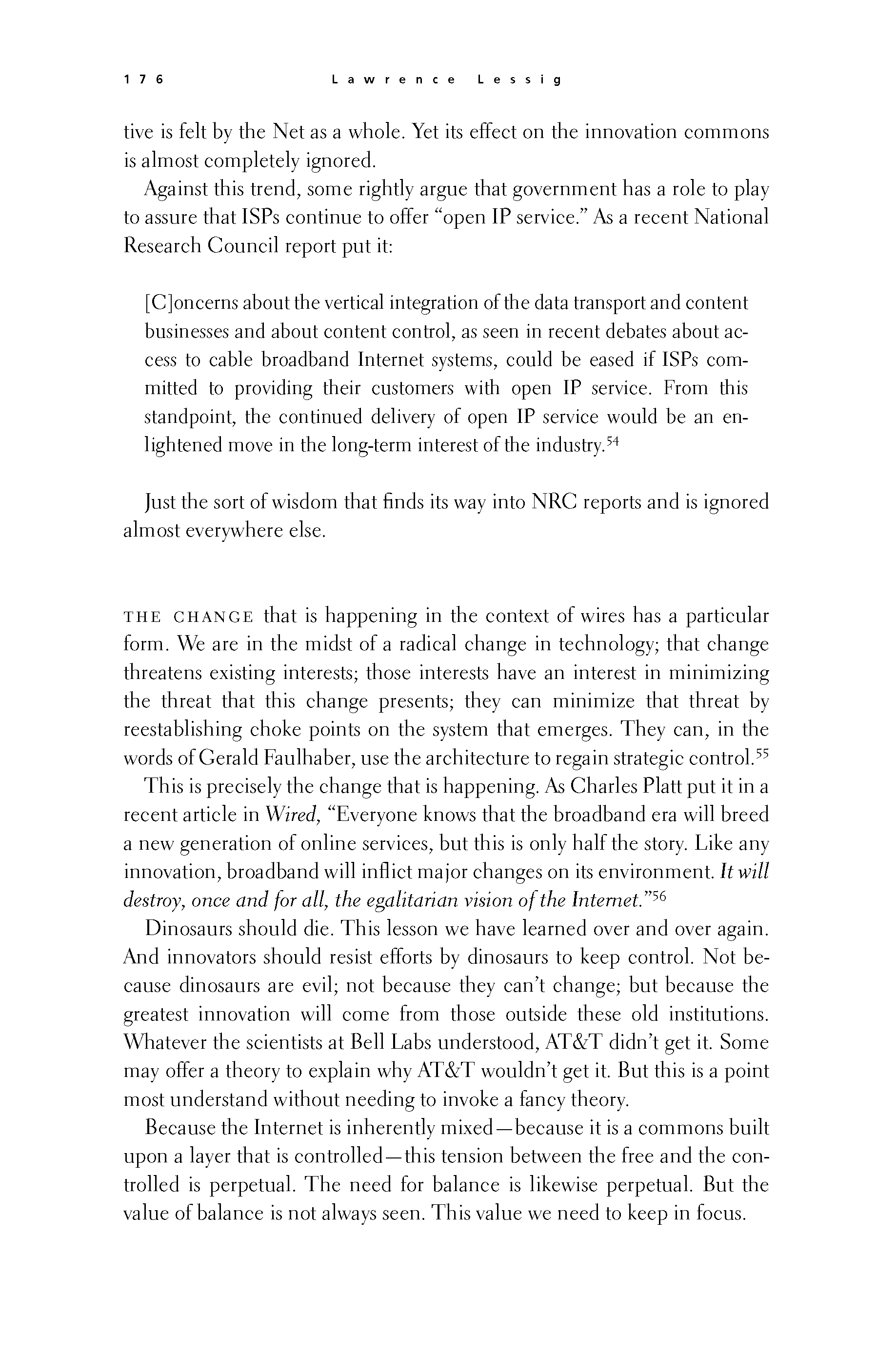 p175 _
-chap- _
toc-1 _
p176w _
toc-2 _
+chap+ _
p177
p175 _
-chap- _
toc-1 _
p176w _
toc-2 _
+chap+ _
p177
tive is felt by the Net as a whole. Yet its effect on the innovation commons
is almost completely ignored.
Against this trend, some rightly argue that government has a role to play
to assure that ISPs continue to offer "open IP service." As a recent National
Research Council report put it:
____ [C]oncerns about the vertical integration of the data transport and content
____ businesses and about content control, as seen in recent debates about ac-
____ cess to cable broadband Internet systems, could be eased if ISPs com-
____ mitted to providing their customers with open IP service. From this
____ standpoint, the continued delivery of open IP service would be an en-
____ lightened move in the long-term interest of the industry.[10-54]
Just the sort of wisdom that finds its way into NRC reports and is ignored
almost everywhere else.
///\\\
The change that is happening in the context of wires has a particular
form. We are in the midst of a radical change in technology; that change
threatens existing interests; those interests have an interest in minimizing
the threat that this change presents; they can minimize that threat by
reestablishing choke points on the system that emerges. They can, in the
words of Gerald Faulhaber, use the architecture to regain strategic control.[10-55]
This is precisely the change that is happening. As Charles Platt put it in a
recent article in _Wired,_ "Everyone knows that the broadband era will breed
a new generation of online services, but this is only half the story. Like any
innovation, broadband will inflict major changes on its environment. _It_will_
_destroy,_once_and_for_all,_the_egalitarian_vision_of_the_Internet._"[10-56]
Dinosaurs should die. This lesson we have learned over and over again.
And innovators should resist efforts by dinosaurs to keep control. Not be-
cause dinosaurs are evil; not because they can't change; but because the
greatest innovation will come from those outside these old institutions.
Whatever the scientists at Bell Labs understood, AT&T didn't get it. Some
may offer a theory to explain why AT&T wouldn't get it. But this is a point
most understand without needing to invoke a fancy theory.
Because the Internet is inherently mixed -- because it is a commons built
upon a layer that is controlled -- this tension between the free and the con-
trolled is perpetual. The need for balance is likewise perpetual. But the
value of balance is not always seen. This value we need to keep in focus.
[[176]]
p175 _
-chap- _
toc-1 _
p176w _
toc-2 _
+chap+ _
p177